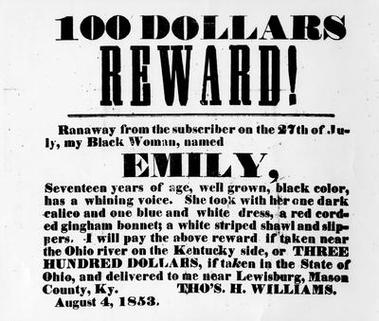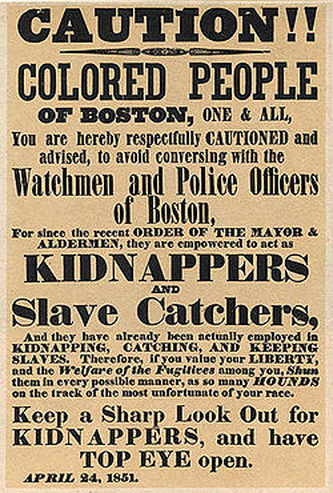Fugitive Slave Act of 1793

The 1793 Fugitive Slave Act also known as an Act respecting fugitives from justice, and persons escaping from the service of their masters was written as a way to ensure that slaveowners would be able to recover their slaves in any US state and to make it harder for slaves to runaway and remain free. Although the U.S. Constitution said that runaway slaves had to be returned it did not state a way to go about this matter,therfore congress took the matter into their own hands and created specific laws, to ensure slaves could be retrived. Congress allowed Slave hunters to apply the Act and capture an escape slaves in any territory or state. Once capture their slave owner were only required to confirm orally before a state or federal judge declared that the person was a runaway.the runaway slaves was not allowed a trial by jury and the judge's decision was final. Some Northerners saw this act as providing an excuse for kidnapping blacks and claiming them as slaves. If a person was caught hiding or helping an escaped slave they could be fined $500. this part of the law made some free people unsure of to helping fugitive slaves because of the consequence if gotten caught. Many Northern states opposed this law and many states passed "personal Liberty" laws to protect fugitive slaves from this law. Laws like these requires the slave owner to give proof that the slave was infact a fugitive slave. In 1842, in Prigg v. Pennsylvania,Edward Prigg had been convicted of kidnapping for taking a black woman and her children from Pennsylvania to Maryland. the Supreme Court held that Pennsylvania's personal liberty law of 1826 was unconstitutional and overturned his conviction, holding that state laws could not interfere with the rights of slave owners reclaiming fugitive slaves.
Fugitive Slave Act of 1850

The Fugitive Slave Act was apart of the"Compromise of 1850" in this compromise California became a free state and prohibited slave-trade in the District of Columbia, they also strengthen fugitive slave laws, Slave Act of 1850 to satisfy southern slave owners. The new law allowed federal commissioners to pursue fugitive slaves in any state and return them to their owners. there were no limitations which means even slaves who had been free for many years could be returned to slavery. The commissioners had the right to make citizens help find runaway slaves; those who refused to help or were caught helping a fugitive slave were fined. A captured fugitive slave could not testify on his own behalf and was not allowed a court trial. The commissioners received ten dollars for every slave returned; if the accused slave were released the commissioner only recieved five dollars. The enforcement of this law angered many in the North. Some states reacted by passing legislation designed to hamper the federal commissioners' activities, but they were declared unconstitutional.
